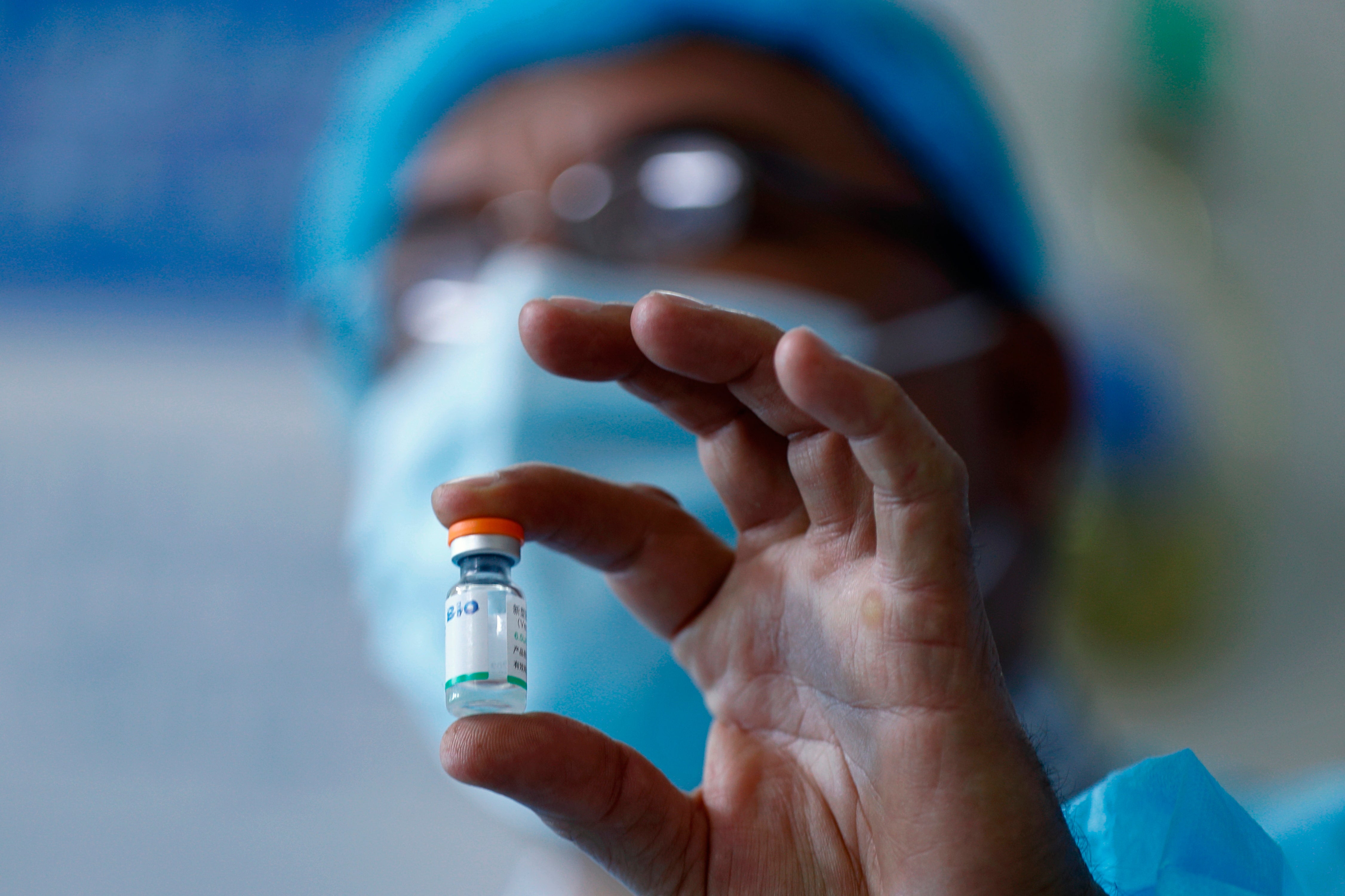Iraq launches vaccine program after arrival of China doses
A Health Ministry spokesman says Iraq has launched its coronavirus inoculation program just hours after the first doses of vaccine arrived from China

Your support helps us to tell the story
From reproductive rights to climate change to Big Tech, The Independent is on the ground when the story is developing. Whether it's investigating the financials of Elon Musk's pro-Trump PAC or producing our latest documentary, 'The A Word', which shines a light on the American women fighting for reproductive rights, we know how important it is to parse out the facts from the messaging.
At such a critical moment in US history, we need reporters on the ground. Your donation allows us to keep sending journalists to speak to both sides of the story.
The Independent is trusted by Americans across the entire political spectrum. And unlike many other quality news outlets, we choose not to lock Americans out of our reporting and analysis with paywalls. We believe quality journalism should be available to everyone, paid for by those who can afford it.
Your support makes all the difference.Iraq launched its coronavirus inoculation program Tuesday just hours after the first doses of vaccine arrived from China a Health Ministry spokesman said.
The program kicked off as Iraq comes to grips with a second wave of the coronavirus.
At dawn, a C-130 military plane arrived in Baghdad with 50,000 Sinopharm vaccine doses gifted by China. More were expected as Iraq's government has allocated funds to secure 1.5 million vaccines from Pfizer and signed a contract for 2 million more from AstraZeneca.
Health Minister Hasan al-Tamimi was the first to receive the vaccine. He was followed by other ministry staff and essential frontline health care workers, said ministry spokesman Saif al-Badr.
A health center close to Al-Mustansiriya University will provide vaccines to the elderly, al-Badr said.
This week, the Health Ministry also made available electronic forms online for Iraqis to make an appointment to receive the vaccine.
Health care worker Mohammed Khudeir was among the first to receive a jab Tuesday in Baghdad's al-Qif hospital.
“We were the first who were vaccinated and after half an hour I am still in good health,” he said. “I am calling upon the citizens not to be afraid of this vaccine.”
Some Iraqis have expressed mistrust of the vaccines, their procurement and their effectiveness.
Rollout will unfold similar to programs in other countries and prioritize the elderly and those with chronic diseases first, according to the ministry.
Iraqi officials are in a race against time as the country grapples with a second wave of the virus, spurred by the more infectious strain first discovered in the United Kingdom.
On Tuesday, Iraq recorded over 4,600 new cases over the previous 24 hours, inching closer to a September peak of over 5,000 new infections within a 24-hour period. A total of 703,000 Iraqis have been infected and 13,450 have died of the virus.